content of level
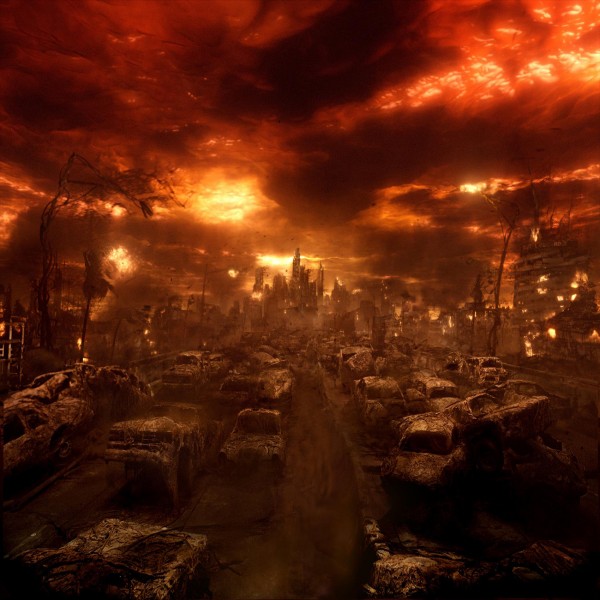
What Does Islam Say about the Day of Judgment
The Day of Judgment day will be the beginning of a life that will never end. On that day, all people will be rewarded by God according to their beliefs and deeds.

Think about the moment you will lie in your grave
Think about the moment you will lie in your grave. Everyone will be gone. Friends, family, partying. Isn't it time to face reality?
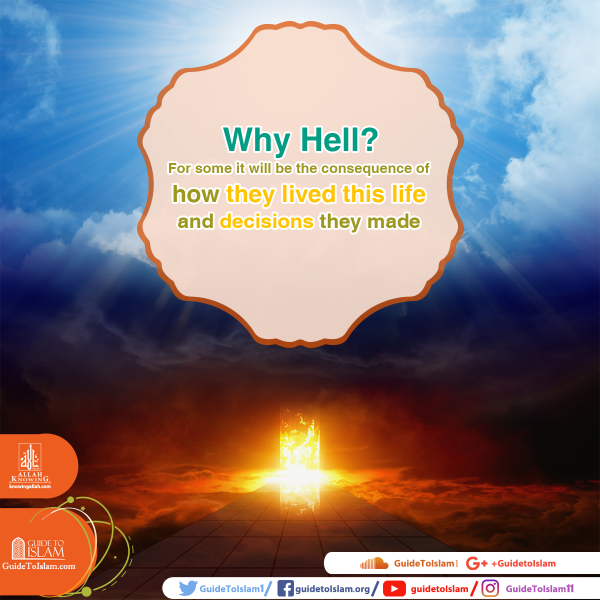
Why Hell?
Why Hell? For some it will be the consequence of how they lived this life and decisions they made

Description of paradise
Paradise is a place of peace, with rivers and fruits, sweet smells, goblets of gold, and the shade of God Himself
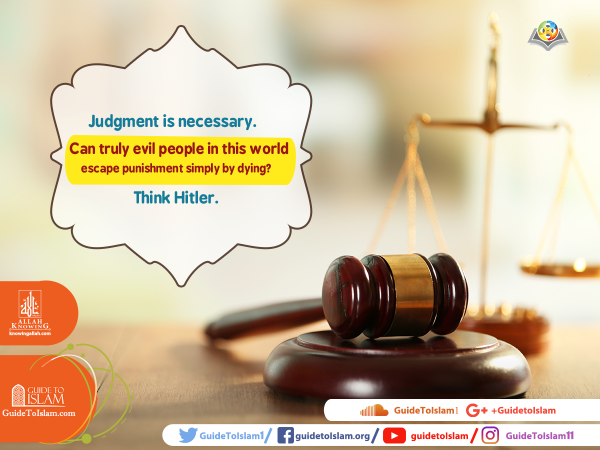
Judgment is necessary
Judgment is necessary. Can truly evil people in this world escape punishment simply by dying? Think Hitler.
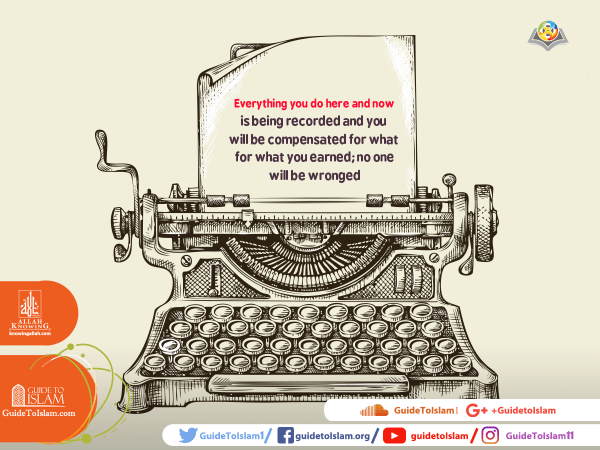
no one will be wronged
Everything you do here and now is being recorded and you will be compensated for what you earned; no one will be wronged
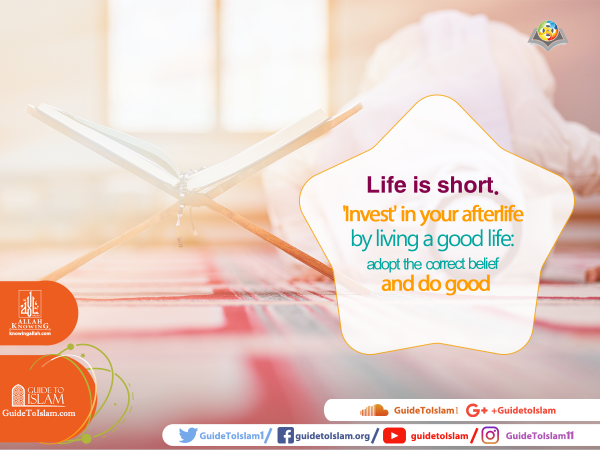
Life is short. Make the most of it
Life is short. Make the most of it. 'Invest' in your afterlife by living a good life: adopt the correct belief and do good
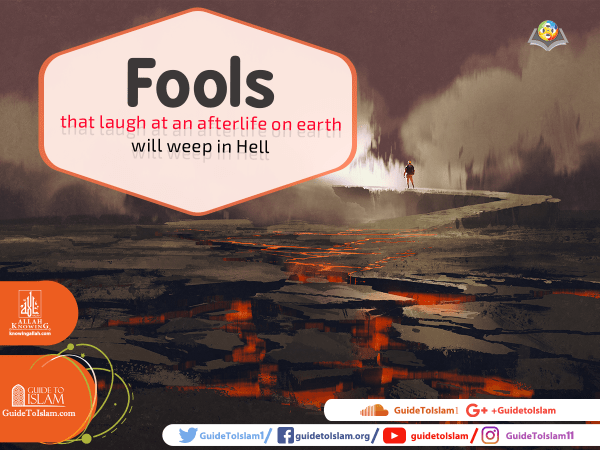
Fools that laugh at an afterlife on earth will weep in Hell
Fools that laugh at an afterlife on earth will weep in Hell
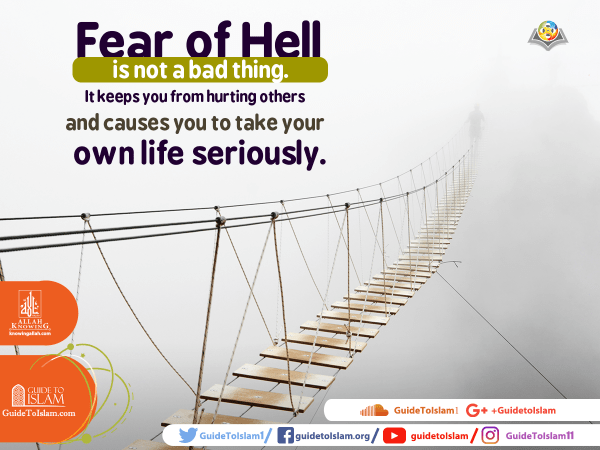
Fear of Hell is not a bad thing
Fear of Hell is not a bad thing. It keeps you from hurting others and causes you to take your own life seriously.
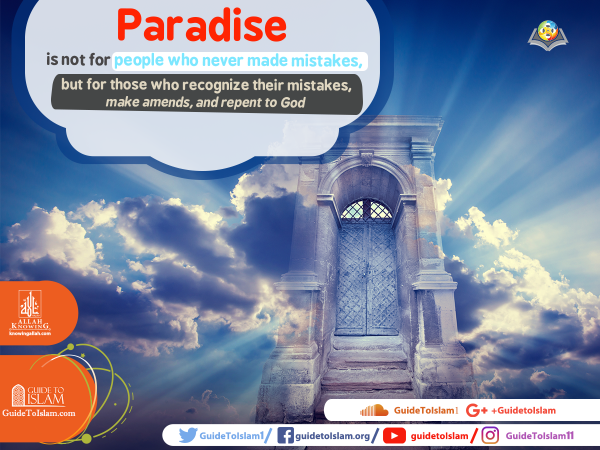
Paradise is not for people who never made mistakes
Paradise is not for people who never made mistakes, but for those who recognize their mistakes, make amends, and repent to God

Don't let pride stop you from belief in God and afterlife
Don't let pride stop you from belief in God and afterlife; correct belief will make you a better, caring, charitable, patient person

Life after death
It is not courage to deny the afterlife at the time of your death, but courage is to accept it & change your present life for the better

Good deeds
As a Muslim, you don't become a believer by just believing in an afterlife, you must seek its rewards by doing 'good deeds'

'I have no idea what's awaiting me or what will happen when this all ends.
'I have no idea what's awaiting me or what will happen when this all ends.' If that's you, read the Quran
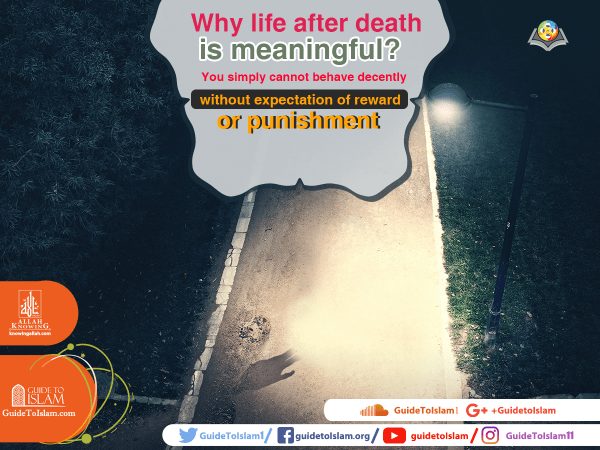
Why life after death is meaningful?
Why life after death is meaningful? You simply cannot behave decently without expectation of reward or punishment
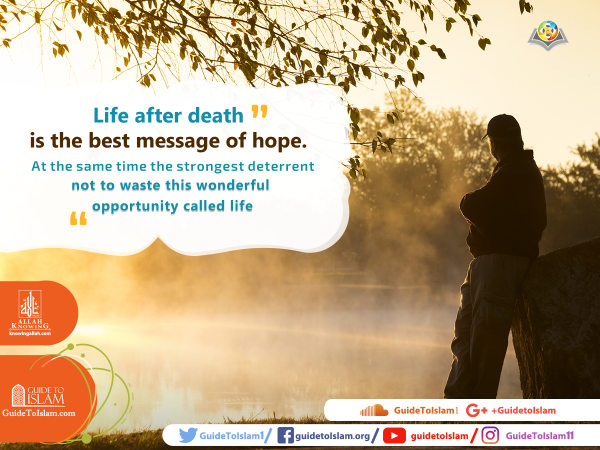
Life after death is the best message of hope
Life after death is the best message of hope. At the same time the strongest deterrent not to waste this wonderful opportunity called life

Promise of reward in afterlife
Promise of reward in afterlife encourages helping the poor, being charitable, fighting injustice, and bringing humility in our lives
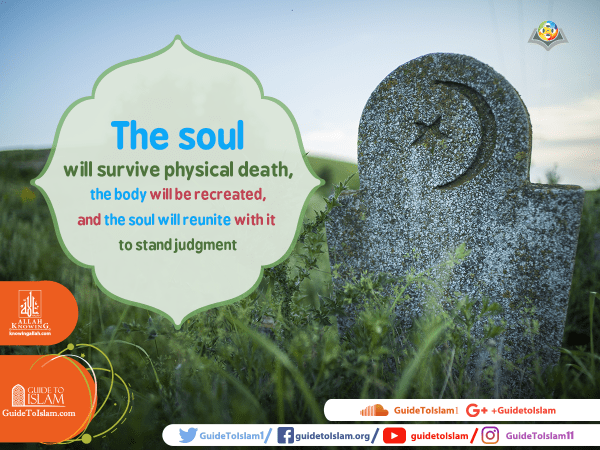
The soul will survive physical death, the body will be recreated
The soul will survive physical death, the body will be recreated, and the soul will reunite with it to stand judgment
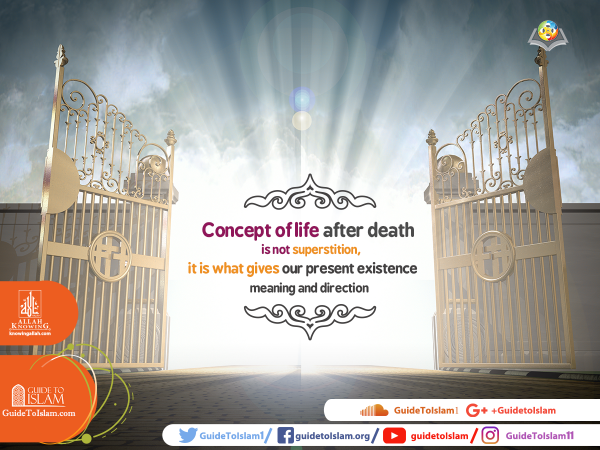
Concept of life after death is not superstition
Concept of life after death is not superstition, it is what gives our present existence meaning and direction
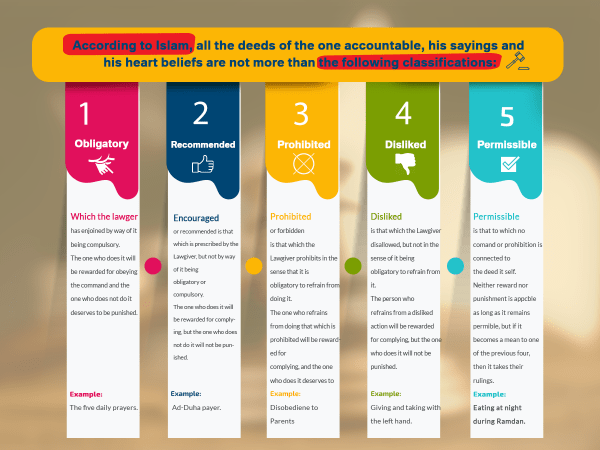
According to Islam, all the deeds of the one accountable, his sayings and his heart beliefs are not more than the following classifications
According to Islam, all the deeds of the one accountable, his sayings and his heart beliefs are not more than the following classifications Fard or Waji b (Obligatory) Which the lawgiver has enjoined by way of it being compulsory. The one who does it will be rewarded for obeying the command and the one who does not do it deserves to be punished. Example: The five daily prayers. Mustahab (Recommended) Encouraged or recommended is that which is prescribed by the Lawgiver, but not by way of it being obligatory or compulsory. The one who does it will be rewarded for complying, but the one who does not do it will not be punished. Example: Ad- Duha payer. Haram (Prohibited) Prohibited or forbidden is that which the Lawgiver prohibits in the sense that it is obligatory to refrain from doing It The one who refrains from doing that which is prohibited will be rewarded for complying, and the one who does it deserves to be Punished Example: Disobedien e to Parents. Makruh (Disliked) Disliked is that which the Lawgiver disallowed, but not in the sense of it being obligatory to refrain from It The person who refrains from a disliked action will be rewarded for complying, but the one who does it will not be punished Example: Giving and taking with the left Hand. Mubah (Permissible) Permissible is that to which no command or prohibition is connected to the deed Itself Neither reward nor punishment is applicable as long as it remains permissible, but if it becomes a mean to one of the previous four, then it takes their rulings. Example: Eating at night during Ramadan.
